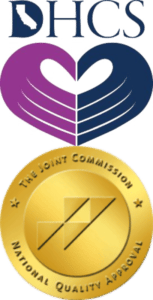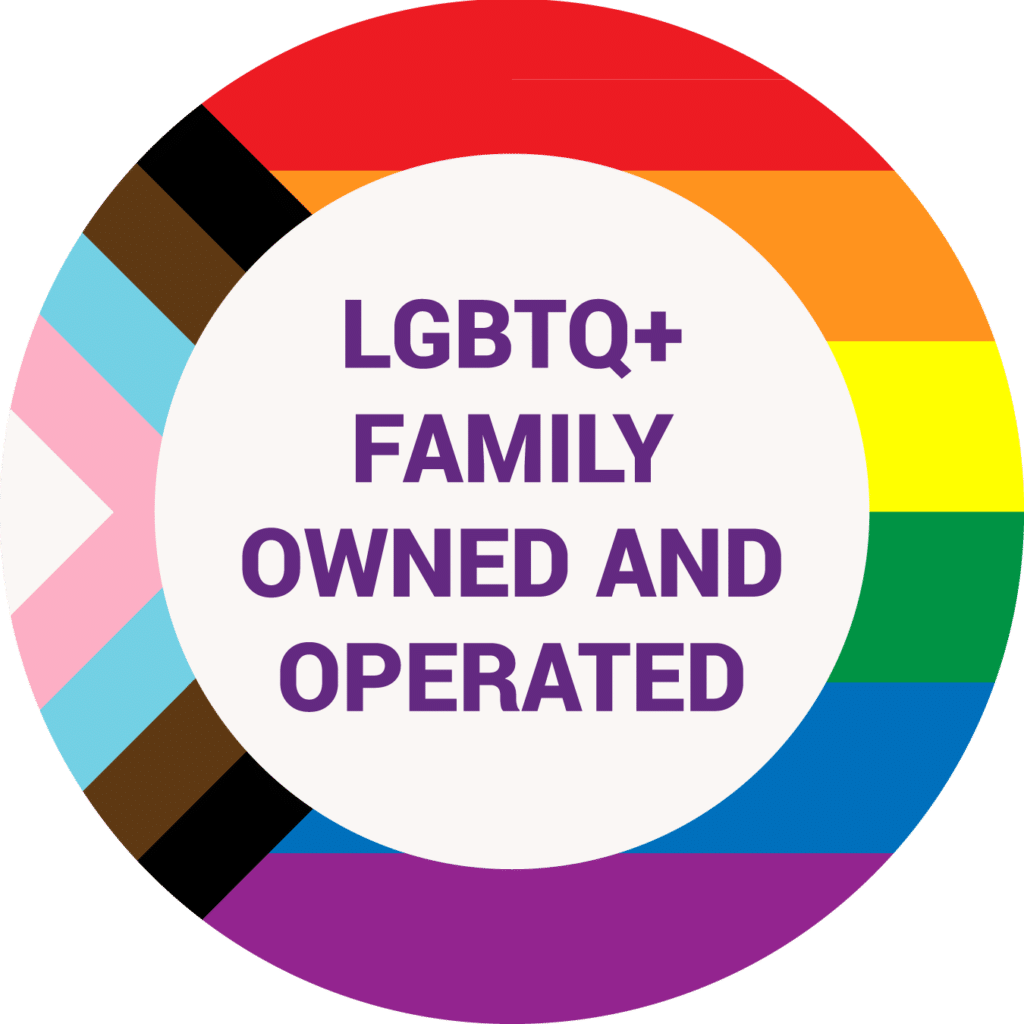Fentanyl Rehab
Los Angeles
Medically Reviewed by: Eric Chaghouri
Located in the vibrant heart of Los Angeles, No Matter What Recovery is a beacon of hope for the LGBTQI+ community facing the challenges of addiction, with a special focus on the perils of fentanyl abuse. Our ethos is anchored in empathy, inclusivity, and a profound understanding of the unique paths to recovery. We aim to empower individuals to reclaim control over their lives, ensuring that every step on this journey is met with dignity, respect, and an unwavering sense of community support.
Understanding Fentanyl Addiction
Fentanyl has rapidly emerged as a formidable challenge in the landscape of substance abuse, particularly in urban centers like Los Angeles. This synthetic opioid’s lethal potency and its clandestine incorporation into other drugs have escalated the risk of overdose, making it a pressing public health concern. Fentanyl is one of the deadliest drugs; over 150 people die every day from opioid overdoses related to synthetic opioids like fentanyl. Recognizing the fentanyl crisis and the dangers of fentanyl addiction is critical, serving as the foundation upon which recovery journeys are built.
The Dangers of Fentanyl Addiction
Fentanyl addiction poses a significant public health challenge, especially in densely populated areas like Los Angeles. Recognized for its extreme potency—far exceeding that of heroin—fentanyl’s association with overdose deaths is alarmingly high. Its capacity to depress the respiratory system can lead to fatal outcomes, even in minuscule amounts.
Recognizing the signs of fentanyl use can be crucial for early intervention. Some key indicators include:
- Drowsiness or changes in alertness
- Confusion or altered mental state
- Extreme happiness followed by depression
- Difficulty walking or talking
- Nausea or vomiting
- Constricted (pinpoint) pupils
- Slowed or stopped breathing
- Sudden weight loss
- Changes in sleeping patterns
- Isolation from friends and family
Dependency on fentanyl can form swiftly, trapping individuals in a relentless cycle of addiction that is hard to escape without specialized help. Withdrawal from fentanyl is notably severe, presenting symptoms such as:
- Intense cravings
- Nausea and vomiting
- Muscle aches
- Anxiety and depression
- Sweating and fever
The long-term use of fentanyl not only deteriorates mental health, leading to conditions like anxiety and depression but also inflicts significant physical harm. Side effects from chronic fentanyl use include, but are not limited to:
- Weakened immune system
- Gastrointestinal issues
- Heart problems
- Respiratory distress
The ripple effects of fentanyl addiction extend beyond the individual, impacting relationships, and employment stability, and incurring substantial costs for healthcare systems. A lack of awareness about the drug’s potency and the dangers of unknowingly consuming fentanyl-laced substances contributes to the high rate of accidental overdoses.
Our Approach to Addiction
At No Matter What Recovery, we reject the notion of a one-size-fits-all solution to addiction. Our treatment programs are specifically tailored to address the diverse needs of the LGBTQI+ community, taking into account the complex interplay between addiction and personal challenges such as discrimination, stigma, and trauma. Our approach is holistic, compassionate, and personalized, focusing on emotional, psychological, and social rehabilitation.
Comprehensive Care Model
Our care model encompasses a wide array of services designed to support individuals on their path to recovery from fentanyl addiction. By offering personalized therapy plans and a robust aftercare program, we provide a comprehensive support system that encourages long-term recovery and personal growth.
Specialized Support for the LGBTQI+ Community
We provide specialized support that addresses the unique challenges faced by the LGBTQI+ community. This includes counseling sessions led by professionals who are part of the LGBTQI+ community themselves or are highly experienced in addressing its specific needs, peer support groups, and resources that are tailored to support the recovery journey of our clients.
Why Choose Us for Your Journey to Recovery
Choosing No Matter What Recovery means selecting a treatment center that deeply understands the intricacies of addiction within the LGBTQI+ community. Our experienced staff, nurturing environment, and commitment to privacy and respect make us a leading choice for those seeking support with fentanyl addiction.
Our Commitment to Privacy and Respect
We place a high value on the privacy and dignity of all our clients. At No Matter What Recovery, you will find a respectful, non-judgmental environment where you can be your true self, confident that your journey is treated with the utmost confidentiality and respect.
Treatment Programs at No Matter What Recovery
Our treatment programs are designed to address the full spectrum of challenges associated with fentanyl addiction. By focusing on therapy and long-term aftercare support, we provide the tools and resources needed for a successful recovery.
Therapy and Counseling
We offer a comprehensive range of therapy and counseling options, tailored to meet the individual needs of our clients. This includes:
- Cognitive Behavioral Therapy (CBT): CBT, an evidence-based approach helps individuals identify and challenge negative thought patterns, promoting healthier behaviors and coping strategies.
- Dialectical Behavior Therapy (DBT): DBT focuses on teaching skills in mindfulness, emotional regulation, distress tolerance, and interpersonal effectiveness, aiding in managing intense emotions and improving relationships.
- Eye Movement Desensitization and Reprocessing (EMDR): EMDR is a transformative therapy designed to help people recover from trauma and other distressing life experiences, including substance abuse.
- Holistic Therapies: Recognizing the importance of treating the whole person, we offer holistic therapies such as yoga therapy. Yoga therapy integrates physical postures, breathing exercises, and meditation to promote mental and physical well-being.
Aftercare Support and Substance Abuse Prevention
Our dedication to your well-being continues long after the initial phase of recovery. We offer ongoing aftercare and support services to help maintain sobriety and support continued growth, including counseling sessions, support groups, and community resources.
Start Healing Today.
Overcome Addiction in Southern California
Choosing the right treatment center is crucial on the path to recovery. At No Matter What Recovery, we are committed to providing the specialized care and support necessary for overcoming fentanyl addiction. We invite you to take that all-important first step towards a brighter future.
If you or someone you love is struggling with a substance use disorder or drug use, we encourage you to contact us today. Our team is ready to offer the support and care needed to begin the recovery journey.
Fentanyl Rehab FAQs
No Matter What Recovery is uniquely positioned with its specialized focus on the LGBTQI+ community, offering personalized care that addresses the specific challenges and needs of this group. Our holistic approach, experienced staff, and supportive environment set us apart.
Our treatment process begins with a comprehensive assessment to tailor the therapy and counseling programs to each individual’s needs, supported by our extensive aftercare services to ensure a smooth transition to a substance-free life.
Family members can expect comprehensive support, including counseling sessions designed to educate and facilitate a supportive environment at home. We believe in healing the entire family unit as part of the recovery process.
If you suspect a fentanyl overdose, act quickly:
- Call Emergency Services: Immediately dial 911 or your local emergency number. Provide details about the situation.
- Look for drug Overdose Signs: Difficulty breathing, inability to wake up, limp body, cold and clammy skin, and blue lips or fingernails are critical signs.
- Administer Naloxone if Available: If you have naloxone (Narcan) and know how to use it, administer it right away. You may need to give multiple doses.
- Ensure Breathing: If the person is not breathing or has weak breathing, provide rescue breathing if possible.
- Stay with the Person: Keep them warm and comfortable, and monitor their condition until emergency services arrive.

Dr. Eric Chaghouri is our Medical Director at No Matter What Recovery. Since completing his forensic psychiatry fellowship, he has established a successful and thriving practice in Southern California, focusing on treatment of co-occurring psychiatric and addictive disorders.

Dr. Eric Chaghouri is our Medical Director at No Matter What Recovery. Since completing his forensic psychiatry fellowship, he has established a successful and thriving practice in Southern California, focusing on treatment of co-occurring psychiatric and addictive disorders.



